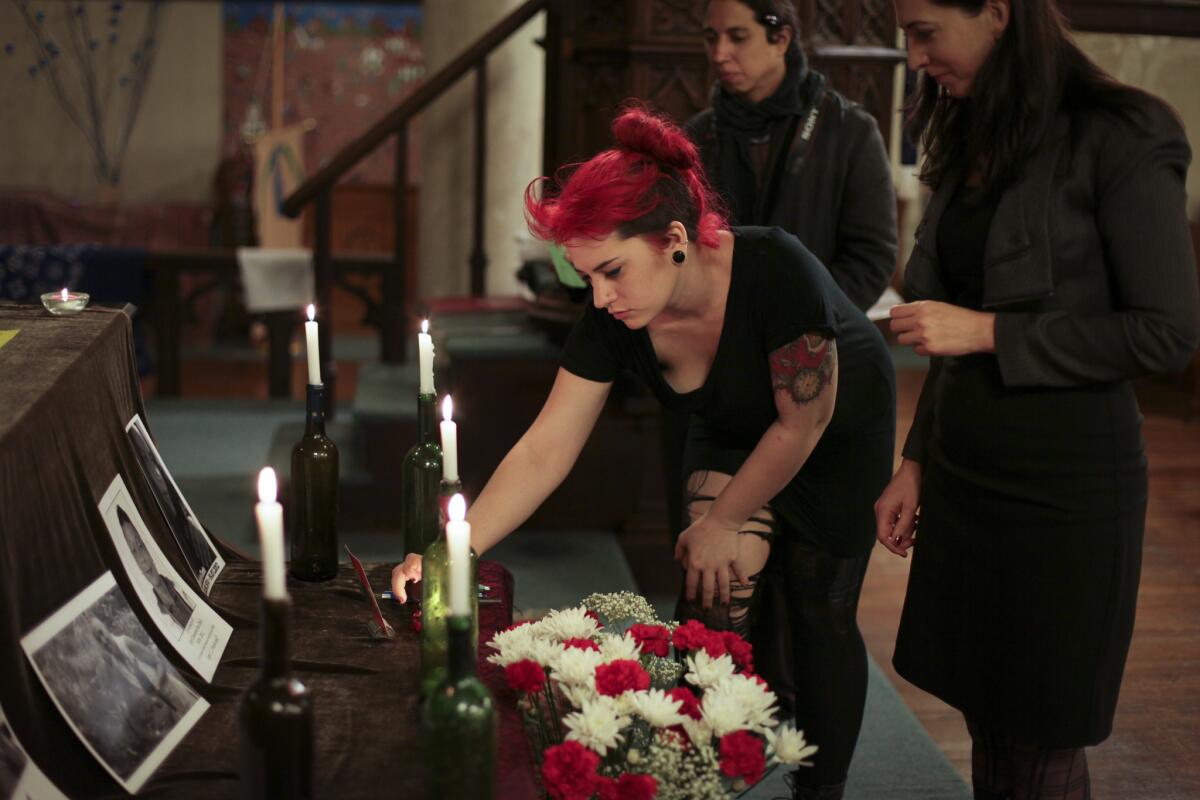Are sex workers’ lives worth less than everyone else’s?

On Tuesday, sex worker activists will gather to mark the 11th annual International Day to End Violence Against Sex Workers. Vigils in New York, Los Angeles and around the world will be held to highlight the everyday violence sex workers face and to honor those who have died.
But the day is not just about remembering those lost; it’s also about acknowledging sex workers as something other than victims. It’s a chance for sex worker activists to fight for greater rights and visibility and to push for saner laws that make sex workers safer rather than pushing them further underground.
It’s is also a time for the general public to acknowledge that sex workers are not faceless victims but people who deserve more than to die violently and be forgotten.
YEAR IN REVIEW: 10 groundbreaking women we lost in 2013
Incidents of violence against sex workers are all too common, but two recent cases highlight the continuing importance of this day of remembrance. Last year, Deanna Ballman, a 23-year-old pregnant mother of two, was raped and killed after answering an ad on Craigslist, according to a recent court filing by a Columbus, Ohio, prosecutor. The Associated Press reported that Ballman was working as a prostitute to support herself and her two young children. Ali Salim, a former doctor who was recently charged with her killing, is alleged to have injected Ballman with a lethal dose of heroin. Her body was found in her car on the side of a rural road in central Ohio.
Are sex workers’ lives worth less than everyone else’s? An attorney in New York recently argued in the affirmative, telling a judge that his client was being too harshly punished for the murder of a transgender sex worker. His client, Rasheen Everett, was sentenced to 29 years for the murder of Amanda Gonzalez-Andujar. But attorney John Scarpa said the sentence was too severe because the victim, after all, was not part of “a higher end of the community,” and “shouldn’t that [sentence] be reserved for people who are guilty of killing certain classes of individuals?”
These cases are horrific, and they merit more than a mere blip on a news feed. They highlight the regular violence sex workers face in the United States. But criminalization and the stigma that surrounds sex work make it harder for the victims to report cases of violence.
Further, a report published last week by Human Rights Watch says police intimidation and criminalization of sex workers in Louisiana has fueled the state’s HIV epidemic. The report cites instances of sex workers experiencing police harassment, including having to trade sexual favors to avoid jail time. In many states, including Louisiana, police are permitted to use carrying condoms as evidence of prostitution. The policy creates a chilling effect on sex workers, who would otherwise carry condoms to use for safe sex. Fear of prosecution prevents them from carrying condoms, thus putting themselves further at risk for contracting and spreading HIV.
YEAR IN REVIEW: Five disheartening moments for women
Despite the violence, sex workers are stepping out of the shadows and organizing for their rights. For example, in California, after numerous compelling testimonies from sex workers, a court in Sacramento recently overturned the rule that prevented sex workers from filing for victims compensation funds if they have been beaten or raped.
Sex workers, like all human beings, deserve to work in safe environments, without stigma and the fear of violence. The International Day to End Violence Against Sex Workers is not just a day to recognize the very real violence sex workers routinely experience; it’s also about seeing them as what they are: mothers, fathers, sisters, brothers, sons and daughters.
ALSO:
The dirty secrets of antibacterial soap‘Affluenza,’ a get-out-of-jail-free card that only the rich can draw
Gisele Bundchen’s glam breastfeeding photo -- and the sad reality
Susan Rohwer is a freelance journalist. Follow her on Twitter @susanrohwer.
More to Read
A cure for the common opinion
Get thought-provoking perspectives with our weekly newsletter.
You may occasionally receive promotional content from the Los Angeles Times.






